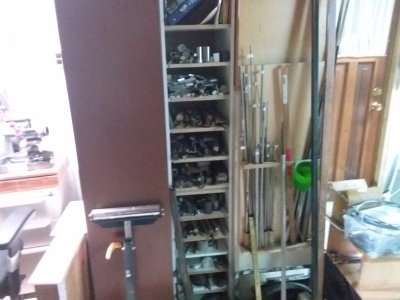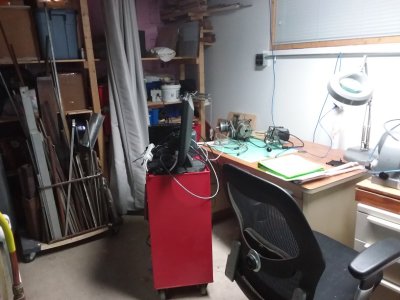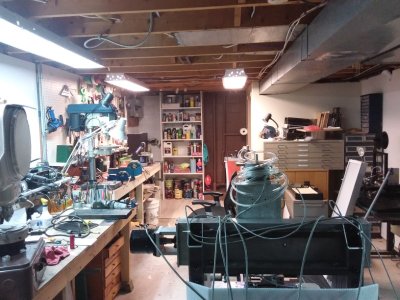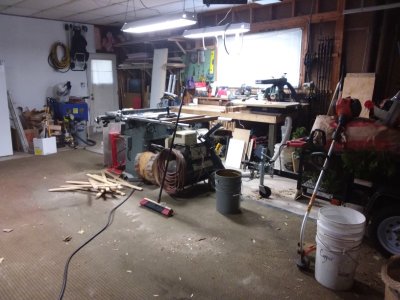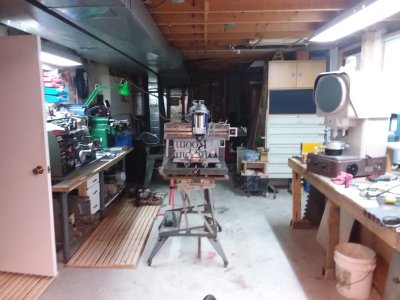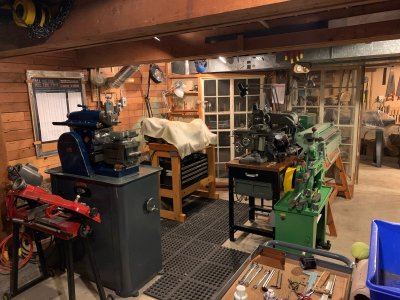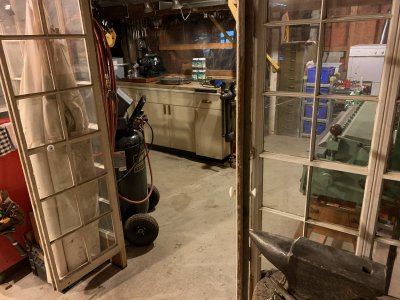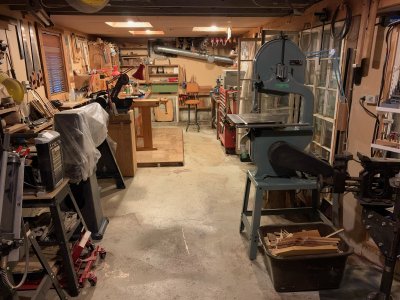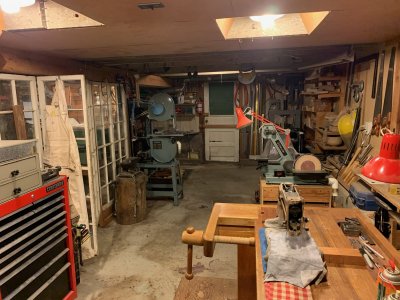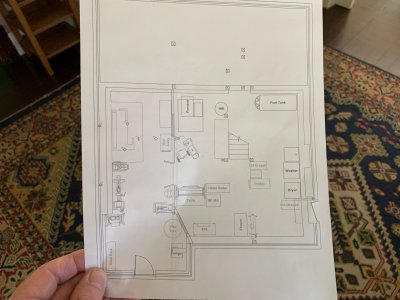GummyMonster
Ken
Evening,
So my situation has changed. I've been moving towards setting up my garage for metalwork and for woodworking.
I was going to build a partition and create 2 separate rooms. Mainly to keep sawdust away from the metalworking equipment, and also to make having a really good air filtering and exchange system for just the woodworking side easier.
This would work fine, but involves a lot of work and expense.
However, my oldest son has moved out for college, and my wife wants me to move my office (where I mostly work on firearms), into his old room.
After spending time in it, I realized how big it actually is. There is more than enough room for my work benches, etc from the office, and still lots of room for the benchtop lathe and milling machine.
It would really work well to have both setups in one room.
It also alleviates a lot of expense right now, as the garage would need upgraded heat and electrical to start.
How many of you work in your basement.? Is there any special considerations? Upgraded house insurance?
I have a air filter and exchange system to keep any smoke, vapors out . And I can have a cement, or some type of industrial laminate flooring under the machines.
Looking for a little direction, and possibly some negatives I haven't thought of.
Thanks,
Ken
So my situation has changed. I've been moving towards setting up my garage for metalwork and for woodworking.
I was going to build a partition and create 2 separate rooms. Mainly to keep sawdust away from the metalworking equipment, and also to make having a really good air filtering and exchange system for just the woodworking side easier.
This would work fine, but involves a lot of work and expense.
However, my oldest son has moved out for college, and my wife wants me to move my office (where I mostly work on firearms), into his old room.
After spending time in it, I realized how big it actually is. There is more than enough room for my work benches, etc from the office, and still lots of room for the benchtop lathe and milling machine.
It would really work well to have both setups in one room.
It also alleviates a lot of expense right now, as the garage would need upgraded heat and electrical to start.
How many of you work in your basement.? Is there any special considerations? Upgraded house insurance?
I have a air filter and exchange system to keep any smoke, vapors out . And I can have a cement, or some type of industrial laminate flooring under the machines.
Looking for a little direction, and possibly some negatives I haven't thought of.
Thanks,
Ken

